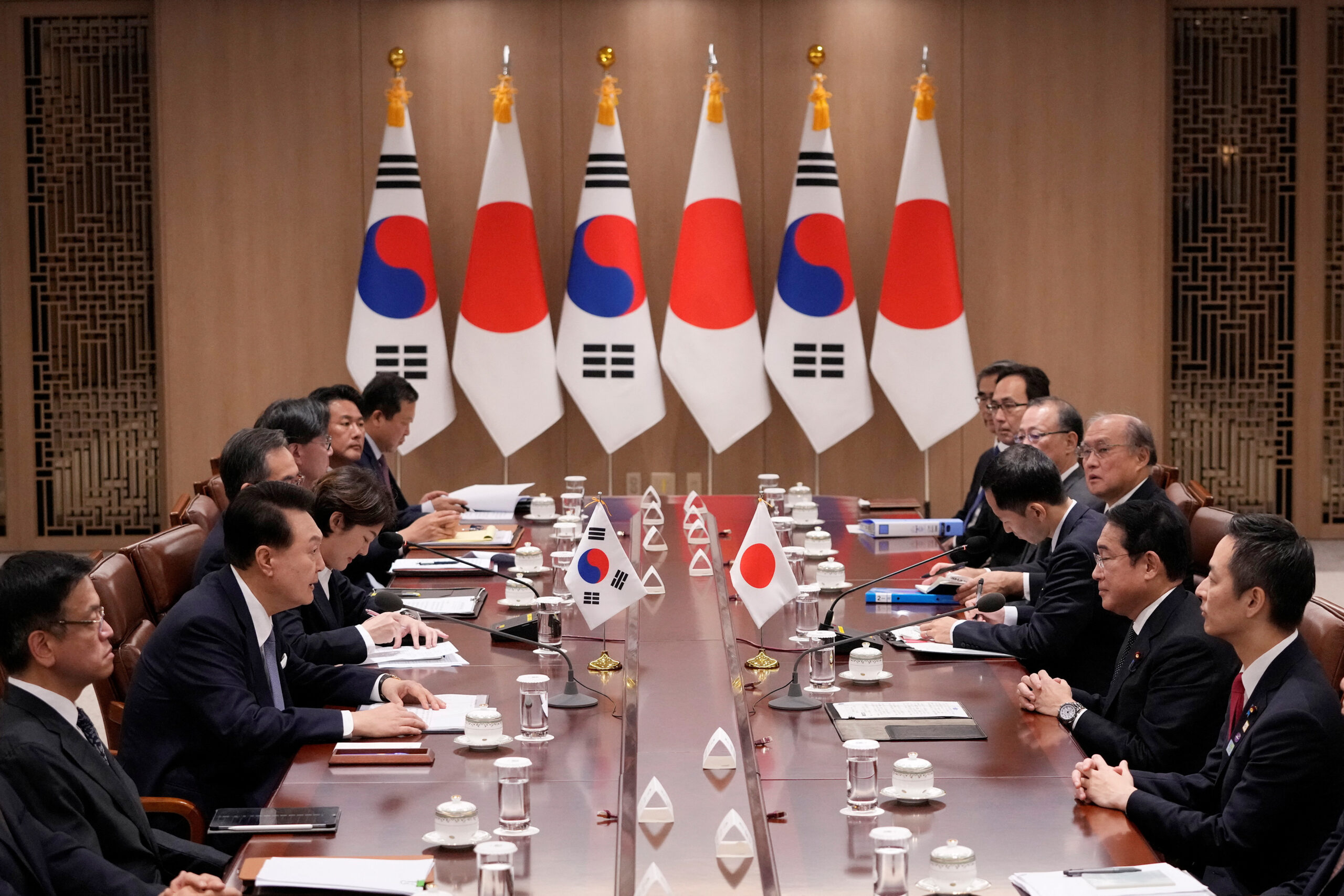
Japan’s Kishida and South Korea’s Yoon urge the continuation of the momentum from their improved relations
During a summit in Seoul on Friday, Japanese Prime Minister Fumio Kishida and South Korean President Yoon Suk Yeol emphasized the importance of maintaining the momentum in their bilateral relations, which are likely to face challenges due to upcoming leadership transitions in Tokyo and Washington.
Kishida’s concluding, rapid visit to his neighboring counterpart as prime minister occurred as the two leaders endeavor to solidify their recently established alliance, following a significant shift in relations, influenced by U.S. President Joe Biden.
The relationship between the two steadfast U.S. regional allies has deteriorated to its lowest point in decades, characterized by contentious diplomatic and trade disputes stemming from Japan’s occupation of the Korean Peninsula from 1910 to 1945.
Kishida underscored the importance of persistently enhancing bilateral relations, reiterating his compassion for Koreans who endured hardships during the period of Japanese colonial rule.
“A considerable amount of history exists … yet it is crucial to embrace the endeavors of those who came before us, who triumphed over adversity, and to collaborate for the future,” Kishida conveyed to Yoon during their meeting.
“I have previously expressed in Seoul my profound sorrow regarding the multitude of individuals who have endured such challenging and distressing experiences under trying circumstances,” he remarked, alluding to his earlier statements made during a visit last year.
Yoon emphasized the importance of maintaining the constructive momentum of collaboration established by the leaders, asserting that the upcoming year could serve as “a turning point” for the relationship to advance significantly as it approaches its 60th anniversary.
Challenges persist in the dynamics of Korea-Japan relations. I trust that both parties will persist in their collaborative efforts with a progressive mindset, enabling us to advance toward a more promising future.
The two expressed their approval of the signing of an agreement aimed at facilitating the evacuation of their respective citizens from an emergency situation in a third country, which Kishida characterized as a manifestation of increasing trust.
According to Yoon’s deputy national security adviser, Kim Tae-hyo, there was a consensus to collaborate in streamlining immigration processes for travelers and to prevent North Korea from leveraging Russia’s support to initiate further provocations.
Kishida has declared his intention to resign this month, prompting Japan’s ruling Liberal Democratic Party to convene elections on September 27 to select his successor.
He is scheduled to return to Tokyo on Saturday following a dinner with Yoon on Friday night, as stated by their offices.
IMMINENT ELECTION AMBIGUITY
Yoon has prioritized the restoration of relations with Tokyo and the enhancement of security collaboration, particularly with Washington, to address the military threats posed by North Korea. This diplomatic effort culminated in a significant trilateral summit at Camp David last year.
As the elections in Japan and the U.S. approach, a pertinent inquiry arises regarding the capacity of these Asian neighbors to sustain a meaningful rapprochement that transcends their historical grievances, particularly with new leadership emerging.
Kishida conveyed to Yoon that the significance of bilateral relations would remain constant irrespective of his successor and committed to supporting the continuity of this momentum even post-tenure, as stated by Kim.
Washington expresses assurance that Kishida’s successor will maintain a strong commitment to the ongoing alliance, with Mira Rapp-Hooper, a senior official at the White House National Security Council, stating that “all of these projects we’ve been working on together are going to continue at pace under new leadership.”
“Prime Minister Kishida and President Yoon undertook significant personal and political risks to advance the enhancement of their bilateral relations in ways that previous administrations had failed to achieve.”
Kim Hyoung-zhin, a former deputy foreign minister of South Korea, remarked that Republican presidential candidate Donald Trump adopted a more detached stance regarding the partnership with Seoul and Tokyo during his tenure, whereas his Democratic counterpart Kamala Harris would presumably maintain the trajectory established by Biden if she were to be elected.
All Categories
Recent Posts
Tags
+13162306000
zoneyetu@yahoo.com



